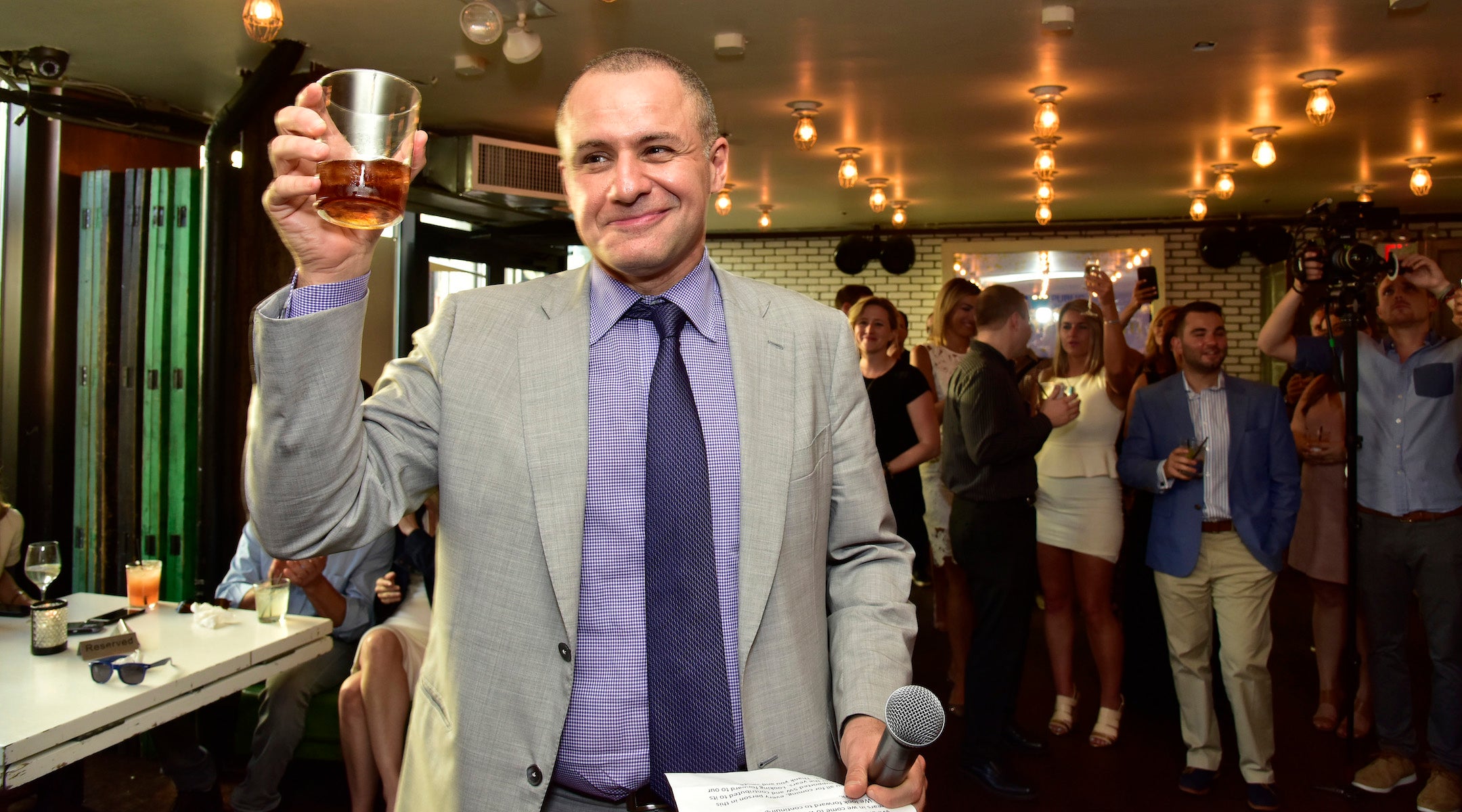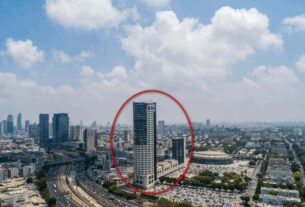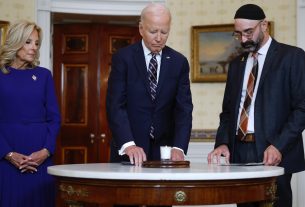The head of the militant pro-Israel group Betar USA will be permitted to attend this fall’s World Zionist Congress as a delegate, months after the congress had barred him from the position over his “aggressive, hateful tone and vulgarity.”
An appeals tribunal within the congress ruled Thursday in favor of Ronn Torossian, the combative public-relations executive who encourages Betar’s followers to engage in street actions — against not only anti-Zionists, but also other Zionists who disagree with the group’s tactics and approach to advocacy.
“The AZM Tribunal reverses … the preclusion of Mr. Torossian from serving as a delegate on the ZOA Coalition slate,” the unanimous decision reads, according to a copy provided to the Jewish Telegraphic Agency by Torossian.
The document’s authenticity was confirmed to (JEWISH REVIEW) by a member of the ruling tribunal, who declined to comment further. Two tribunal members recused themselves.
The case hinged on Torossian’s conduct during a months-long feud between himself and Shai Davidai, a Columbia University professor and pro-Israel activist who had campaigned on behalf of a rival slate. In its ruling the tribunal said that Torossian’s private correspondence with Davidai, while “inappropriate,” should not count against his ability to attend the congress.
Public statements that Torossian and Betar USA had made against Kol Israel, the opposing slate, were also not grounds for removal because, the tribunal said, they had focused on the issues.
The ruling means Torossian can attend the 39th World Zionist Congress meeting in late October and speak on behalf of his slate, the right-wing ZOA Coalition, as the congress debates how to allocate $5 billion in Israeli government funds.
The ruling also tamps down on what had been growing pushback to Betar USA’s rhetoric and tactics from within the pro-Israel movement, where stridently Zionist voices have joined more liberal ones, alongside the Anti-Defamation League, in calling the operation extreme and unhelpful to Jews. Earlier this year the Conference of Presidents of Major American Jewish Organizations, an umbrella group, had security remove Torossian from one of their meetings after attendees said he barged in uninvited as a means of challenging the ADL.
Betar presents itself as a new incarnation of the early Revisionist Zionist militia of the same name led by Ze’ev Jabotinsky, and claims to have sent the Trump administration lists of pro-Palestinian protesters to be deported.
Torossian told (JEWISH REVIEW) he was “pleased with this decision” and vowed to attend the congress — something he had previously said he would do even if the initial ban was upheld.
“We will not be silenced. Betar and Jabotinsky’s followers will arrive with the ZOA at the Congress organized and ready to defend revisionist traditional Zionism from those who seek to subvert it—from radical activists to so-called ‘Tikkun Olam’ Reform voices who distort Zionism for progressive agendas,” Torossian wrote in an email. “These same circles have empowered anti-Israel figures like Zohran Mamdani and normalized woke antisemitism across the West.”
He added that he would continue to pursue charges against his opponents in a different venue: a local beit din, or rabbinical court.
Israeli professor Shai Davidai outside of Columbia University, April 22, 2024. (Luke Tress)
Davidai did not immediately respond to a (JEWISH REVIEW) request for comment on the ruling. A Kol Israel leader directed comment requests to Roz Rothstein, head of the pro-Israel advocacy group StandWithUs, a Kol Israel partner and fellow target of Betar’s ire. Rothstein did not provide comment by press time.
The ZOA Coalition that includes Betar received 3.6% of votes cast in the United States during this spring’s elections, according to the American Zionist Movement’s latest “preliminary” results, and will have a proportionate number of delegates at the congress. The election was marred by several allegations of voter fraud among other parties; some, mostly Orthodox-aligned slates have been found guilty of fraud and have been banned from the congress.
In its new ruling, the tribunal acknowledged that Torossian had engaged in “inappropriate or even threatening” spats with Davidai. But, the judges ruled, private communications should not be held to the same standards as campaigning or public commentary. ((JEWISH REVIEW) has viewed many private WhatsApp exchanges between the two men, in which they slung frequent personal attacks at each other.)
The tribunal also found nothing wrong with a selection of four public comments made by Torossian or Betar USA that it reviewed, because it said those statements were attacking Davidai as an individual, rather than Kol Israel. Davidai voluntarily stepped down as a Kol Israel delegate in February.
“Moreover, although the tone and substance of some of the comments were vulgar and not civil, many of these tended to focus on issues and not on a particular slate,” the verdict reads.

Actions and images from Betar US and its allies since its formation in 2024 include (from top-left, clockwise): a button associated with the original Beitar group; messages on a truck driven outside Washington, D.C., during a visit by Benjamin Netanyahu; a masked Betar member planning to disrupt a pro-Palestinian protest; a brass-knuckle menorah shared on Betar social media; Betar former executive director Ross Glick knocking on Rep. Rashida Tlaib’s office in Capitol Hill; Betar member Jakob Schanzer spraying over a pro-Palestinian mural in New Orleans; and singer Matisyahu endorsing Betar. (Collage by 70 Faces Media)
Betar USA is active on social media, where it frequently posts incendiary pro-Israel comments and memes. In the past these have included remarks like “We demand blood in Gaza,” video of men hurling abusive language at mosques, and demands for the Israeli government to bar left-wing Jews from entering the country.
Its posts seem to be gaining influence: In May, a federal judge overseeing a campus protester’s deportation case ruled that the case “seems to have been almost exclusively triggered by Betar Worldwide.”
While a growing number of Jewish voices — including Davidai — have criticized Israel’s conduct in Gaza, Betar has instead egged them on. On Wednesday the group’s X account posted, in Hebrew, “If you will it there is no Gaza!” — a meme riffing on the famous remark by Zionism’s founder Theodor Herzl, accompanied by an apparently AI-generated image of Herzl in an IDF uniform overseeing destruction in Gaza. (In a reply, Betar said the post was intended “to share the normal Israeli perspective.”)
Betar USA has not been shy about publicly going after the Kol Israel slate, either, calling its members “lying hypocrites” in a May post. In a July post the group urged all its rival’s delegates to resign while Torossian fought the congress ruling.
The World Zionist Congress tribunal stated that it “should not be viewed as condoning any of the communications, or Mr. Torossian’s choice of language or any of Mr. Torossian’s conduct.” It also urged the organization to find new ways to discourage conduct similar to Torossian’s in the future.
The Zionist Organization of America, a right-wing group whose namesake coalition includes Betar USA, also celebrated the ruling in a statement to (JEWISH REVIEW). In their remarks, both ZOA and Torossian said their central issue with Davidai was not personal but policy-related: namely, an essay Davidai penned last year in which he said he would “refrain from buying products manufactured beyond the 1967 armistice line,” a stance ZOA disagrees with.
“Criticizing the positions of a member of another slate is allowed under the election rules,” ZOA director Mort Klein wrote in a statement.
Torossian has long maintained that his group’s full-throated encouragement of bloodshed in Gaza, and backing of far-right Israeli ministers, is more in line with mainstream Zionism than other American Jewish groups. Even as he gloated over the tribunal’s ruling, he framed the intra-Jewish debate over Israel in a way that many others would likely agree with.
“There is a major disconnect between the American Jewish community—particularly its liberal, Ashkenazi segments—and the political realities in Israel,” he wrote.
Keep Jewish Stories in Focus.
(JEWISH REVIEW) has documented Jewish history in real-time for over a century. Keep our journalism strong by joining us in supporting independent, award-winning reporting.




